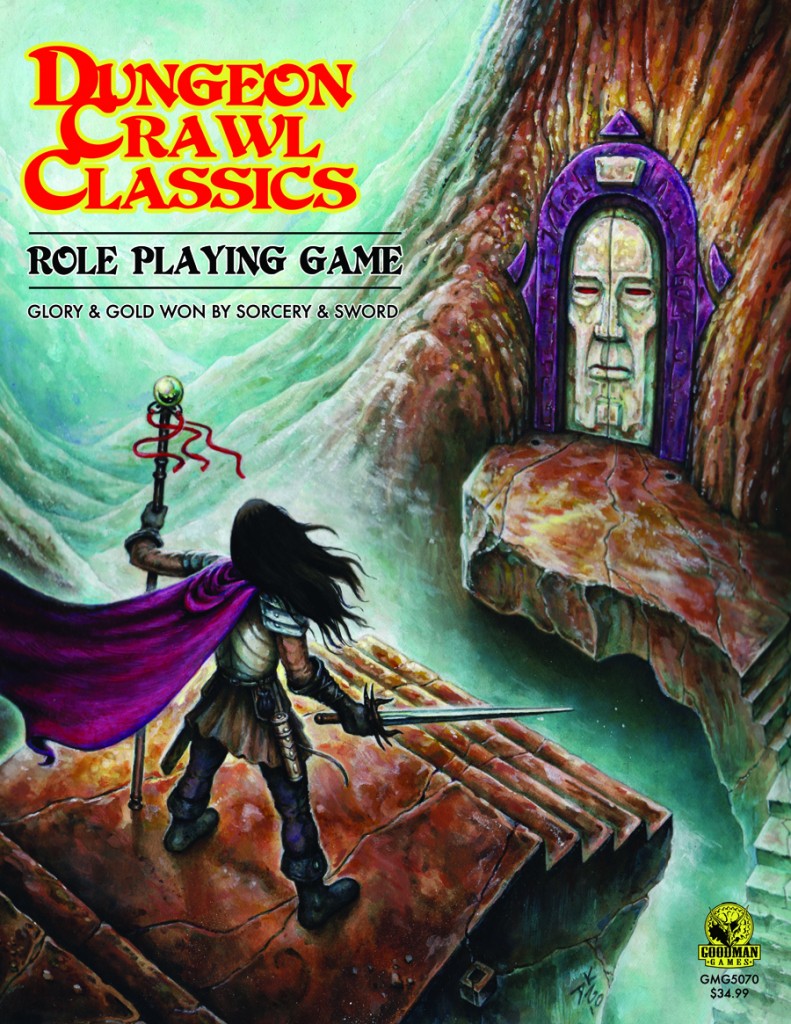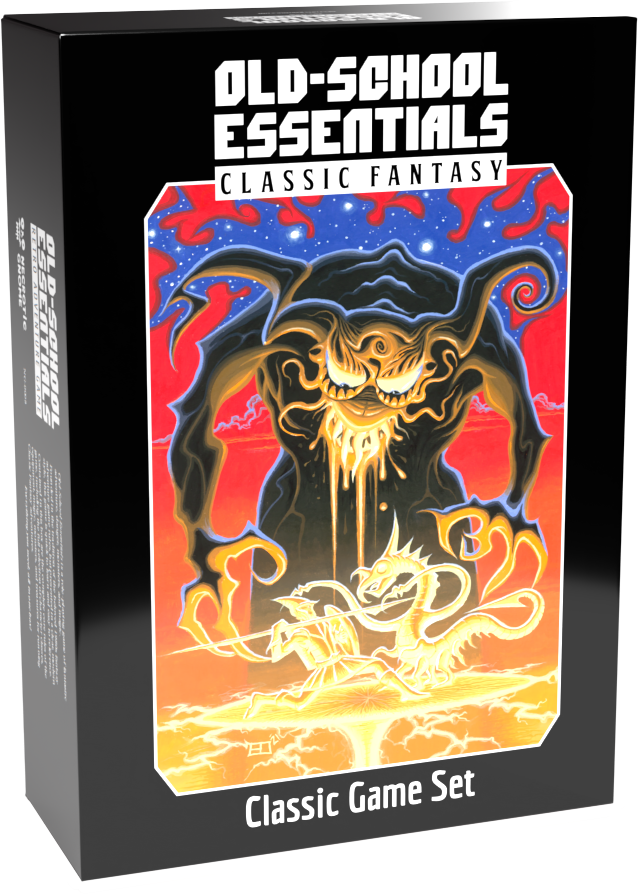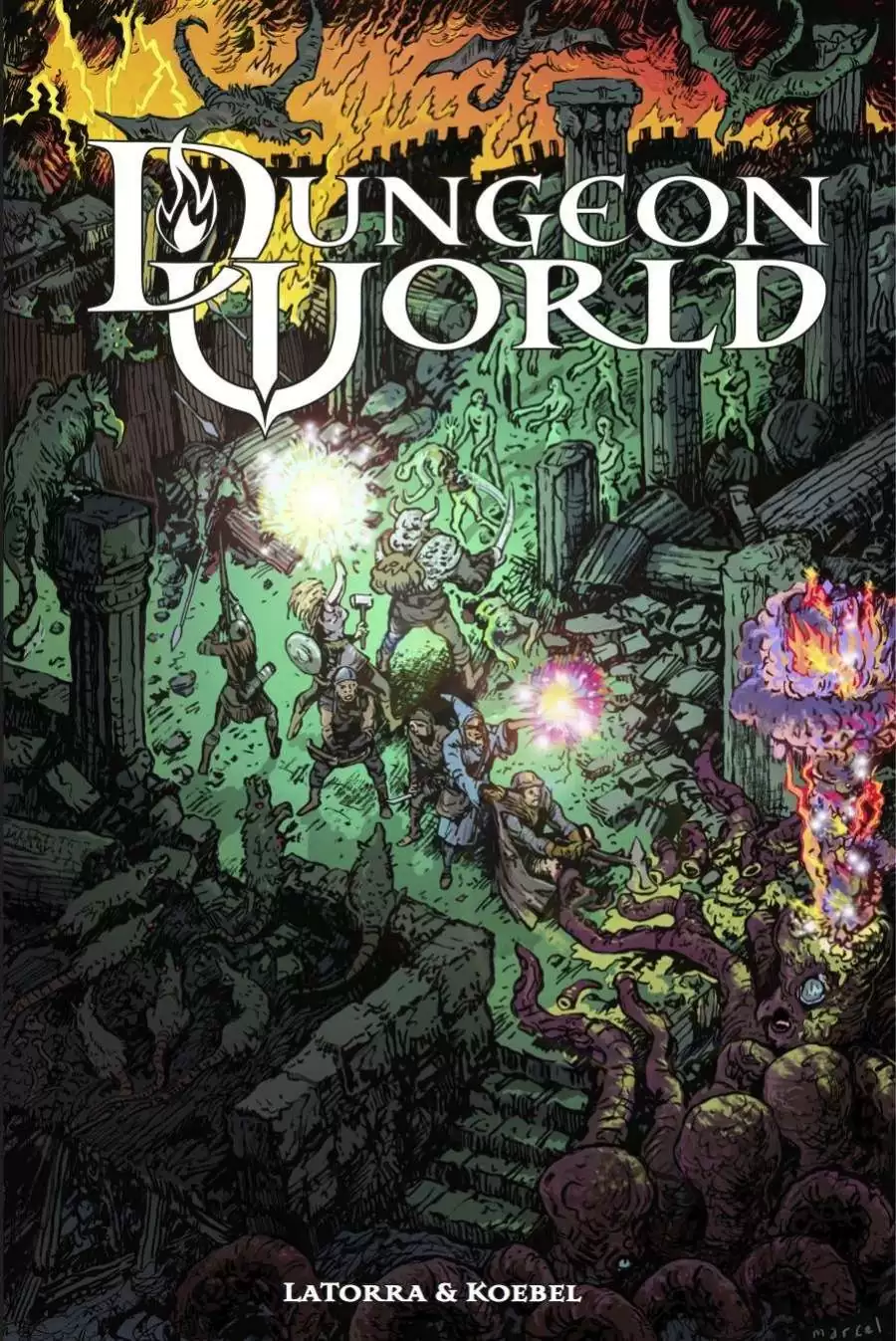Dungeon Crawl Classics Fantasy; Dark Fantasy; Old-School Renaissance (OSR); Exploration-Driven; Resource Management; Low Magic; Collaborative Worldbuilding
Dungeon Crawl Classics (DCC) is a tabletop roleplaying game that harkens back to the origins of sword & sorcery fantasy. It emphasizes fast-paced gameplay, exploration-driven adventures, and a high degree of player agency within a dangerous and often bizarre world. DCC distinguishes itself through its unique mechanics like the character funnel, mercurial magic, and the heavy influence of Appendix N literature, offering a distinct experience compared to more mainstream RPGs.
Theme and Setting
Dungeon Crawl Classics embraces a dark fantasy aesthetic, drawing inspiration from the pulp fantasy and sword & sorcery tales of Appendix N authors. The setting is typically low-magic, where magic is unpredictable and dangerous. Adventurers are not heroes in the traditional sense but rather reavers, cutpurses, and warlocks seeking gold and glory. The world is filled with cryptic secrets, long-dead civilizations, and lurking horrors, all set against a backdrop of collaborative worldbuilding where the Judge (Game Master) and players contribute to the narrative and environment. Many official modules and fan-created content expand the core setting, offering diverse locales like the sword-and-sorcery world of Lankhmar or post-apocalyptic science-fantasy landscapes found in Mutant Crawl Classics.
Core Mechanics and Rules
DCC RPG uses a customized d20 system, maintaining compatibility with the Open Gaming License (OGL). Core mechanics include unique dice (d3, d5, d7, d14, d16, d24, d30 alongside the standard set), character funnels, and mercurial magic. The character funnel starts players with multiple 0-level characters, most of whom will likely die in the first adventure, emphasizing the brutal and unforgiving nature of the game. Magic is wild and unpredictable; spells have unique effects determined by the result of the spell check, adding an element of risk and reward to spellcasting. Resource management is key, as adventurers must carefully manage their supplies and abilities to survive the dangers of the dungeon.
What Makes It Unique
Several elements contribute to DCC's unique appeal. The character funnel is a defining feature, creating a sense of expendability and encouraging players to think strategically. The mercurial magic system adds a layer of unpredictability and excitement to spellcasting. The strong influence of Appendix N literature (Clark Ashton Smith, Jack Vance, Michael Moorcock and more) distinguishes DCC from other fantasy RPGs, providing a distinct flavor of sword & sorcery. The game also encourages a collaborative worldbuilding approach, where players contribute to the creation of the setting alongside the Judge.
Target Audience and Player Experience
Dungeon Crawl Classics is aimed at players who enjoy old-school roleplaying, exploration-driven gameplay, and a high level of challenge. The game emphasizes player skill and resourcefulness over character optimization. DCC appeals to those who appreciate a sense of danger and unpredictability, where character death is a real possibility. The game's fast-paced rules and emphasis on fun over simulation make it accessible to new players while still offering depth and complexity for experienced gamers. The active community provides ample resources and support for both players and Judges, including online communities, fan-created content, and convention events.



